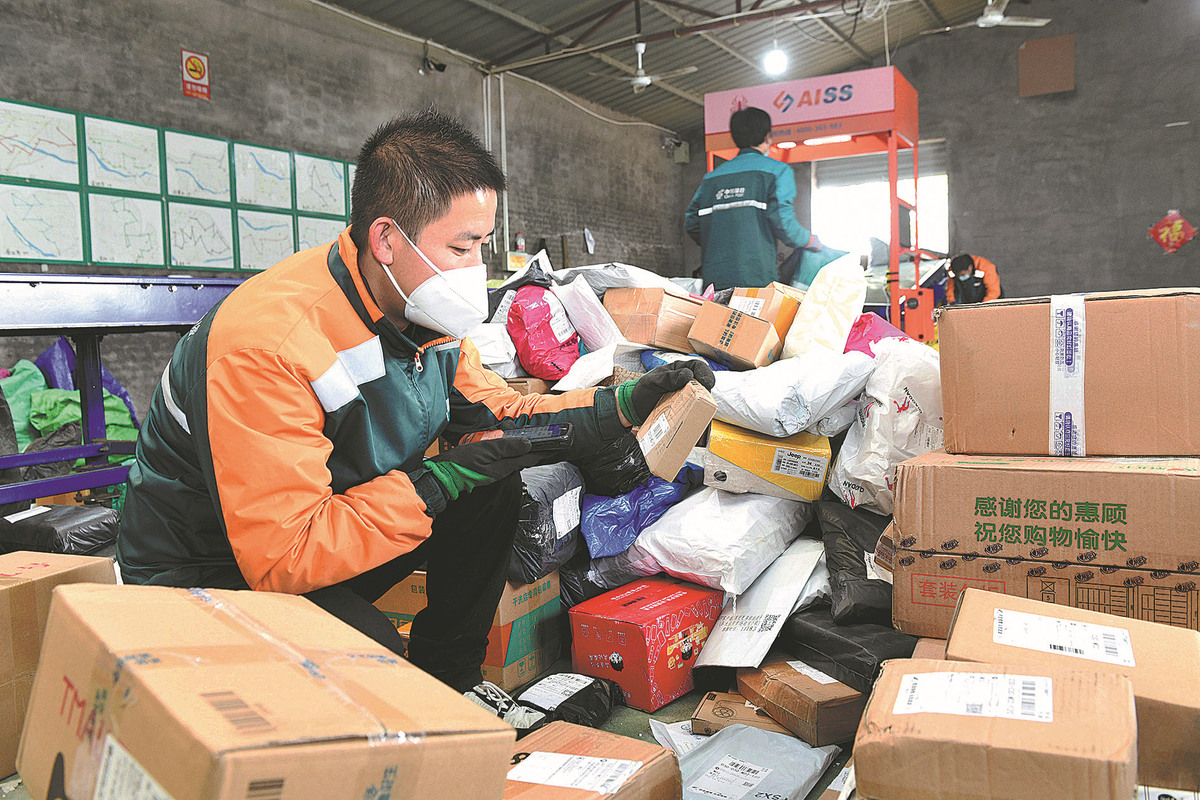Emerging sectors drive new laws, amendments


Research rising
Data released by the National Bureau of Statistics last year show that about 200 million people in China were in flexible employment, with a rising number engaged in new sectors, such as express delivery, ride-hailing services and livestreaming.
Wang Yan, another judge at the Beijing court, always follows the statistics, saying it is a must for judicial professionals to embrace the internet. "The more we understand about how online services work, the more effectively we can resolve related disputes," she said.
In a case Wang handled in 2018, a woman surnamed Ge, who was working as a driver for a ride-hailing company, lost consciousness as she responded to an order to pick up a customer at 11:50 pm on Sept 30 that year. Having lost control, Ge was killed when her car collided with other vehicles.
Her family members claimed that Ge's death was work-related, and applied for compensation from the company. However, it refused on the grounds that it didn't have an employer-employee relationship with Ge.
Unable to reach an agreement, the two sides turned to the court.
An investigation by the court found that Ge had not signed an employment contract with the platform, and under the business operating model she had the right to decide when to start providing her services and whether to accept orders assigned by the platform.
Wang said that meant the platform could not force Ge to provide the services, but it could lower her customer scores through an algorithm if she consistently declined assigned orders. The lower scores would make it difficult for her to receive orders later on.
Based on the findings, the court identified a flexible labor relationship between Ge and the platform, rather than stable, long-term employment in which workers are strictly managed by employers and receive pay or medical insurance if they have work-related injuries.
Although the relationship could not be legally proved, Wang said in her ruling that the improper approach of the service — lowering scores provided by customers if drivers refused to accept assigned jobs — should be noted.
She called on the platform to shoulder more responsibility by improving its business operations and to optimize the service pattern to further protect people's personal safety and traffic safety.
She noted that new sectors have played a major role in advancing sustainable and high-quality economic growth "but that doesn't mean they can develop in a disorderly fashion".
She added that the healthy development of new industries contributes to promoting employment and maintaining social stability. That means judges need to conduct more research on cases involving such sectors, especially those that use algorithms and related operating models because that would help identify the root causes of disputes.
NPC deputy Li Zongsheng agreed, saying that such studies would help advance legislation. "People's rights and interests will be better protected if a sound legal environment can be established," he said.
Contact the writer at caoyin@chinadaily.com.cn

























